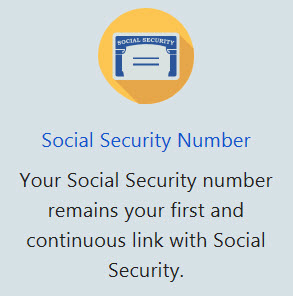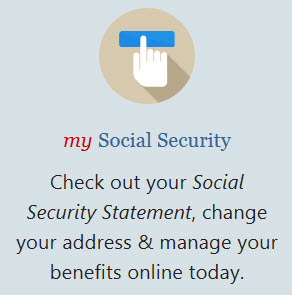Freezing Your Credit Does Not Protect Your Social Security Number
In light of breaches at major credit reporting agencies and at many places we shop, it’s extremely important to note that freezing your credit account and taking extra steps to monitor credit history do nothing to protect your Social Security number.

Your Social Security Number (SSN) is the cornerstone of your financial home. Whether you’re just building a foundation or have completed renovations to your dream house, your SSN is the key to protecting your financial future, and to ensuring that you get the most you can from your retirement benefits.
Why is protecting your Social Security number so important?
Well, for starters, you’ll need it to get a job, take out loans (mortgages, cars, college loans, etc.), open bank and investment accounts, and, of course, to collect Social Security and get certain other government services. That’s why it’s vital to protect your SSN—whether you are just getting started or are about to retire. Those 9-digits are unique to you and anyone who gets a hold of them could wreak havoc on your financial house.
Identity theft is one of the fasted growing crimes in America. Thieves using your SSN likely have your other personal information so they can impersonate you, apply for credit cards under your name, then use that card to rack up bills that they don’t pay. The result is damage to YOUR credit. If you haven’t had your identity stolen yet, I’ll bet you’ve heard from friends, family or co-workers about the nightmare of identity theft. And, resolving the corresponding issues can take years.
There are 4 obvious things you should do to protect your Social Security number:
- Never carry around your SSN card. It does not belong in your wallet. Keep it at home in a safe place or in your safety deposit box.
- Treat your SSN as confidential and don’t give it out unnecessarily or to people and places that you don’t think need it.
- If asked for your SSN, question why it’s needed, how it will be used, and what happens if you refuse. Your doctor’s office or cell phone company really doesn’t need your SSN.
- Go to the Social Security Administration website to learn how to create your own online account.
Everyone should create a personal Social Security Account online
A not so obvious way to protect your SSN is to establish your personal SSN account online, mySocialSecurity. Everyone should do this – no matter what age or stage of life. It’s super easy and quick to do.
Go to the Social Security website and find the “my Social Security” icon or use the SIGN IN/ UP link on the upper right. You’ll go through the usual process of selecting a user name and password. But, the Social Security Administration has added an additional layer of protection to the process. They will assign you a security code for your account. In addition, you’ll be required to change your password every six months.
If you already put a credit freeze or fraud alert in place, you’ll have some additional steps to go through to set up your mySocialSecurity account. You’ll likely have to visit a local Social Security office or temporarily remove the credit freeze. Take the time to go through these steps!
Your online account will help protect your Social Security number and give you more information you need to know
Your online account will show your estimated benefits at Full Retirement Age (FRA) and your last reported earnings. You can also download your information to save or print and request a replacement card. Once your account is established, it takes away the risk that anyone else might try to create one in your name, even if they have your SSN. That’s important because once thieves are into your account they can divert your social security benefits to themselves.
One of your greatest resources for all things Social Security is …. The Social Security website! www.ssa.gov. Check it out. In addition to the mySocialSecurity account sign up, you’ll find FAQs and a variety of Retirement Estimators. Also, revisit my blog that helps you navigate the Social Security website. You’ll find a fun Social Security scavenger hunt that gives clues to finding basic information on the website.
Check out these other informative resources on protecting your Social Security number:
Social Security Matters: Protecting Your Social Security is a blog post by Jim Borland, Acting Deputy Commissioner for Communications for the Social Security Administration.
Social Security’s Guide to Identity Theft and Your Social Security Number is found on the SSA website.
AARP Guard Your Social Security Number: Be smart about sharing and protecting your privacy.




